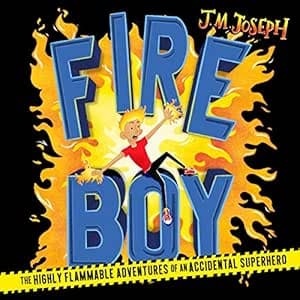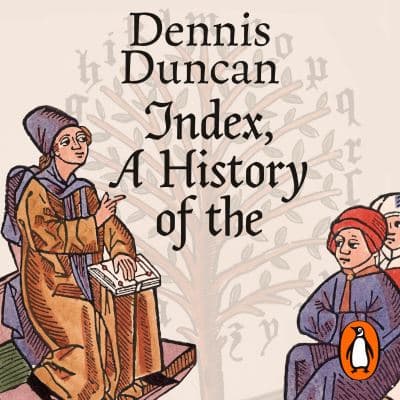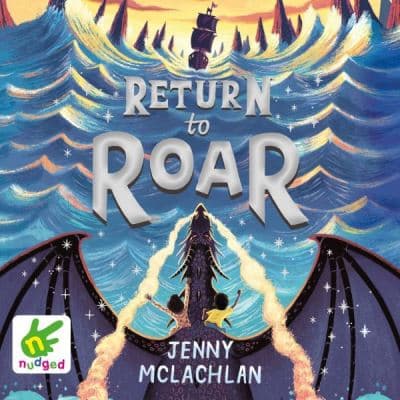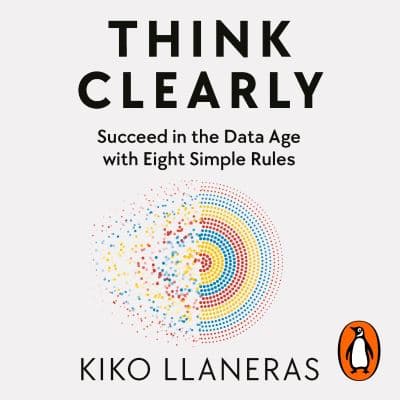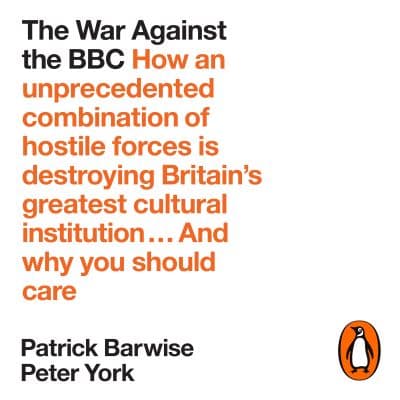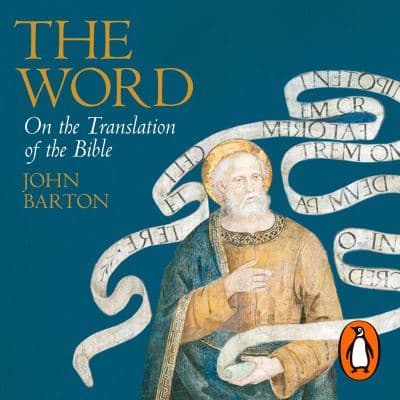Neil Gardner
- Animals
Read by: Neil Gardner
Duration: 3 hrs 38 mins
There is no real evidence that humans ever 'domesticated' cats. Rather, it seems that at some point cats saw the potential value to themselves of humans. John Gray's wonderful new book is an attempt to get to grips with the philosophical and moral issues around the uniquely strange relationship between ourselves and these remarkable animals.
Feline Philosophy draws on centuries of philosophy, from Montaigne to Schopenhauer, to explore the complex and intimate links that have defined how we react to and behave with this most unlikely 'pet'. At the heart of the book is a sense of gratitude towards cats as perhaps the species that more than any other - in the essential loneliness of our position in the world - gives us a sense of our own animal nature.
- Key Stage 2
Read by: Neil Gardner
Duration: 6 hrs 43 mins
When 11-year-old Aidan receives a mysterious package of sweets from South America in the post, he and his two best friends Sadie and Hussein eat one sweet each - and suddenly develop amazing superpowers. Sadie can move objects with her mind. Hussein can control any electronic device. And Aidan can ignite his body at will...and when he's on fire, he can fly.
When they discover that the sweets were sent by a traitorous criminal who is trying to hunt them down to get them back, they have to use all their new powers to outwit him.
But can three ordinary kids keep their powers a secret? Will Aidan learn to control his fiery capabilities? Or will the ultimate bad guy show up and spoil the whole adventure?
Book 1 in the Fireboy series.
- History - General
Read by: Neil Gardner
Duration: 8 hrs 10 mins
Most of us give little thought to the back of the book - it's just where you go to look things up. But here, hiding in plain sight, is an unlikely realm of ambition and obsession, sparring and politicking, pleasure and play. Here we might find Butchers, to be avoided, or Cows that sh-te Fire, or even catch Calvin in his chamber with a Nonne.
This is the secret world of the index: an unsung but extraordinary everyday tool, with an illustrious but little-known past. Here, for the first time, its story is told. Charting its curious path from the monasteries and universities of thirteenth-century Europe to Silicon Valley in the twenty-first, Dennis Duncan reveals how the index has saved heretics from the stake, kept politicians from high office and made us all into the readers we are today.
We follow it through German print shops and Enlightenment coffee houses, novelists' living rooms and university laboratories, encountering emperors and popes, philosophers and prime ministers, poets, librarians and - of course - indexers along the way. Revealing its vast role in our evolving literary and intellectual culture, Duncan shows that, for all our anxieties about the Age of Search, we are all index-rakers at heart, and we have been for eight hundred years.
- Historical Romance
Read by: Neil Gardner
Duration: 13 hrs 30 mins
John, Duke of Bedford, grew to manhood fighting for his father, King Henry IV of England, on the wild and lawless Northern Marches. A prince of the royal blood, loyal, strong, the greatest ally that his brother - the future Henry V - was to have. Filled with the clash of bitter rivalries and deadly power struggles, this is Georgette Heyer's last and most ambitious novel.
- Key Stage 2
Read by: Neil Gardner
Duration: 7 hrs
Twins Arthur and Rose can’t wait to go back to Roar, the fantasy world they get to through their grandad’s attic. Roar is a land where anything they can imagine can be real. But when they return there’s no time for exploring, because a message arrives from their scarecrow enemy, Crowky. WHAT’S IN THE BOX? The Box would always contain the things that scared the twins most - and if Crowky gets hold of it, Roar could be in more danger than ever.
- History - World
Read by: Neil Gardner
Duration: 22 hrs 7 mins
In August 1945, a handful of tired people raised a homemade cotton flag and on behalf of 68 million compatriots announced the birth of a new nation: Indonesia.
Four million civilians had died during the Japanese wartime occupation that ousted its Dutch colonial regime. Another 200,000 people would lose their lives in the astonishingly brutal conflict that ensued - as the Dutch used savage violence to reassert their control, and as Britain and America became embroiled in pacifying Indonesia's guerrilla war of resistance: the 'Revolusi'. It was not until December 1949 that the newly created United Nations finally brought the conflict an end - and with it, 350 years of colonial rule.
Drawing on interviews and eye-witness testimonies, David Van Reybrouck turns this vast and complex story into an utterly gripping narrative.
- History - World
Read by: Neil Gardner
Duration: 22 hrs 7 mins
In August 1945, a handful of tired people raised a homemade cotton flag and on behalf of 68 million compatriots announced the birth of a new nation: Indonesia.
Four million civilians had died during the Japanese wartime occupation that ousted its Dutch colonial regime. Another 200,000 people would lose their lives in the astonishingly brutal conflict that ensued - as the Dutch used savage violence to reassert their control, and as Britain and America became embroiled in pacifying Indonesia's guerrilla war of resistance: the 'Revolusi'. It was not until December 1949 that the newly created United Nations finally brought the conflict an end - and with it, 350 years of colonial rule.
Drawing on interviews and eye-witness testimonies, David Van Reybrouck turns this vast and complex story into an utterly gripping narrative.
- Science - Technology
Read by: Neil Gardner
Duration: 7 hrs 3 mins
It’s almost impossible to feel confident we’ve made the right choice when we are constantly faced with conflicting data. From choosing the right school for our children to understanding major social and political events, making informed decisions can feel overwhelming. In a world overflowing with data, it is more important than ever to decipher what the numbers tell us. Drawing on years of work interpreting and explaining data about almost anything, renowned data journalist Kiko Llaneras offers practical tools and shortcuts to help you understand the numbers and make better decisions using a quantitative lens.
- Economics Politics & Current Affairs
Read by: Neil Gardner
Duration: 5 hrs 25 mins
Too Late to Awaken sees Slavoj Zizek forge a vital new space for a radical emancipatory politics that could avert our course to self-destruction. He illuminates why the liberal Left has so far failed to offer this alternative, and exposes the insidious propagandism of the fascist Right, which has appropriated and manipulated once-progressive ideas. Pithy, urgent, gutting and witty, Zizek's diagnosis reveals our current geopolitical nightmare in a startling new light, and shows how, in order to change our future, we must first focus on changing the past.
- Radio & TV Journalism
Read by: Neil Gardner
Duration: 9 hrs 59 mins
The BBC is a central part of British life, shared culture and international standing. It is the British public's most important and trusted news provider in a world of global fake news; a hugely popular, low-cost source of universally available information, education and entertainment; and the crown jewel of the UK's global reputation.
But the BBC is in peril as never before. It faces ever-increasing competition and threats from new technology and consumption trends. It suffers relentless attacks from a range of hostile players motivated by their own political and commercial interests. And it faces deep funding cuts. These pressures may even destroy it within a generation.
This book is a powerful wake-up call to halt the destruction of one of our greatest assets, built up over almost a century, before it's too late.
- Radio & TV Journalism
Read by: Neil Gardner
Duration: 9 hrs 59 mins
The BBC is a central part of British life, shared culture and international standing. It is the British public's most important and trusted news provider in a world of global fake news; a hugely popular, low-cost source of universally available information, education and entertainment; and the crown jewel of the UK's global reputation.
But the BBC is in peril as never before. It faces ever-increasing competition and threats from new technology and consumption trends. It suffers relentless attacks from a range of hostile players motivated by their own political and commercial interests. And it faces deep funding cuts. These pressures may even destroy it within a generation.
This book is a powerful wake-up call to halt the destruction of one of our greatest assets, built up over almost a century, before it's too late.
- Religion & Philosophy
Read by: Neil Gardner
Duration: 11 hrs
Brought to you by Penguin.
How the Bible has been translated and why it matters
The Bible is held to be both universal and specific, the source of fundamental truths inscribed in words that are exact and sacred. For much of the history of Judaism and almost the entirety of Christianity, however, believers have overwhelmingly understood scripture not in the languages in which it was first written but rather in their own - in translation.
This book examines how saints, scholars and interpreters from ancient times down to the present have produced versions of the Bible in the language of their day while remaining true to the original. It explains the challenges they negotiated, from minute textual ambiguities up to the sweep of style and stark differences in form and thought between the earliest writings and the latest, and it exposes the bearing these have on some of the most profound questions of faith: the nature of God, the existence of the soul and possibility of its salvation.
Reading dozens of renderings alongside their ancient Hebrew and Greek antecedents, John Barton traces the migration of biblical words and ideas across linguistic borders, illuminating original meanings as well as the ways they were recast. 'Translators have been among the principal agents in mediating the Bible's message,' he writes, 'even in shaping what that message is.' At the separation of Christianity from Judaism and Protestantism from Catholicism, Barton demonstrates, vernacular versions did not only spring from fault lines in religious thinking but also inspired and moulded them. The product of a lifetime's study of scripture, The Word itself reveals the central book of our culture anew - as it was written and as we know it.
© John Barton 2022 (P) Penguin Audio 2022
- Previous<
- Page1
- Next>

